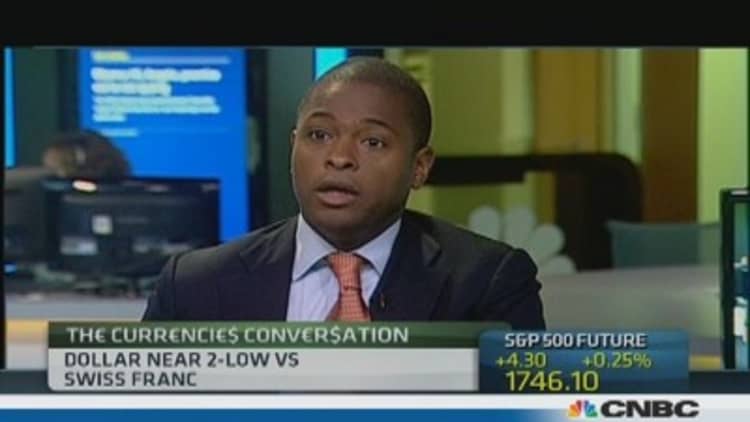Forget the BRICS: what's really concerning investors now are the "Fragile Five". The spectre of "global contagion" from Brazil, Indonesia, India, Turkey and South Africa is looming, Alan Ruskin, global macro strategist at Deutsche Bank has warned.
The phrase "Fragile Five" seems to have been first coined by Morgan Stanley analyst James Lord in August. Since then, the phrase has gained increasing traction as a catch-all for the most concerning emerging market economies – which together represent around 7 percent of the world's economy.
As the cost of employing workers in these countries has risen, there has been less investment from foreign companies, fewer exports and slower economic growth. This has hit those countries' balance of payments – which measures the balance of a country's transactions with the rest of the world. If a country's exports, including financial transactions, are less than its imports it runs a current account deficit.
Coupled with relatively weak economic growth in the Fragile Five, these current account deficits are causing alarm among investors.
Add elections next year in four of the five countries, and there's further cause for concern.
(Read more: Why emerging markets currency plunge is not over yet)
The Fragile Five's currencies saw a massive sell-off when it looked as though the U.S. Federal Reserve was going to gradually wind down its bond-buying program known as quantitative easing. As QE meant more readily available cash for investors, emerging markets have been benefiting with increased investment. But worries about the Fed "taper" to the QE program led to currency traders pulling their money out.
"QE led to hot money flows into some emerging economies, with loose financial conditions, higher wages and widening BoP deficits the result," according to Stephen King, chief economist at HSBC.
After the sell-off, it is now time to start "lumping together" the five, according to David Bloom, global head of foreign exchange strategy at HSBC.

The Brazilian real is now a "buy today, sell tomorrow" story because of the likelihood that the rise in interest rates may hit the country's economy, according to Bloom. Earlier this month, Brazil's outlook was downgraded from positive to stable by ratings agency Moody's amid concerns about slowing growth in one of the world's biggest exporters.
(Read more: Where next for Brazil?)
The Indian has caused concerns because the fall in its value has not been coupled with the expected change in its balance of payments, as imports like oil are still expensive. And the Indonesian rupiah is concerning because it is relatively difficult to sell it, owing to administrative requirements brought in by the government, according to Bloom.
(Read more: Why rupiah won't recover)
But there are varying degrees of "fragility" among the five and investors should be wary of deciding to lump all of them into one strategy, Bloom warns. The South African rand and Turkish lira have already fallen far enough that they have reached a point where they are now more attractive, Bloom said.
"These current account deficits happened five years ago, but now the liquidity is drying up there is a knee jerk reaction to sell them all," he said.
"The beauty of the balance of payments is that it always balances, but how and at what price for the currency?"
There has recently been a slight rally in these currencies, after the resolution of the U.S. government's partial shutdown.
(Read more: Emerging markets' reprieve only temporary)
The situation of the "Fragile Five" demonstrates how central banks are sometimes less powerful in their own economy than the Fed, Luis Costa, emerging markets currency strategist at Citi, told CNBC.
"A rising tide lifts all boats and even the extremely vulnerable currencies like the South African rand or Turkish lira or the Indian rupee are being helped. This doesn't have anything to do with what their central banks are doing," Costa said.
Still, worries about the "Fragile Five" are far from over.
"These currencies will face another sell-off if there is a further shock like the lack of tapering or another U.S. shutdown," Bloom warned.
- By CNBC's Catherine Boyle. Twitter: @cboylecnbc.


